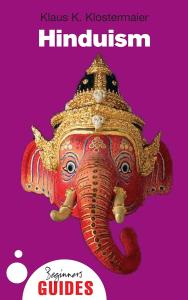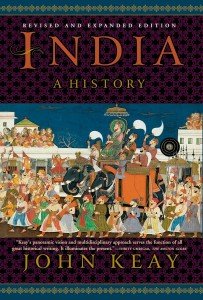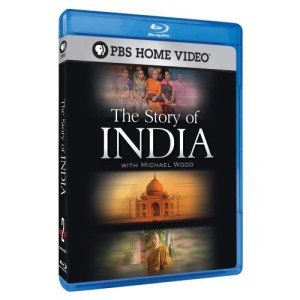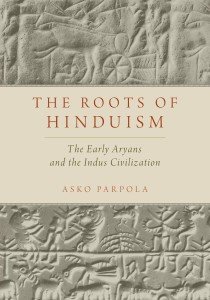A Review of Virtue, Success, Pleasure, and Liberation:
The Four Aims of Life in the Tradition of Ancient India
Exploring Alain Danielou’s Interpretation of Ancient Indian Philosophy
 Alain Danielou’s Virtue, Success, Pleasure, and Liberation: The Four Aims of Life in the Tradition of Ancient India, published by Inner Traditions in 1993, is a profound exploration of the foundational principles of Indian philosophy. Danielou examines the four essential goals of human existence: Dharma (Virtue), Artha (Success), Kama (Pleasure), and Moksha (Liberation), providing insights into their interconnectedness and relevance to contemporary life. While this book is a scholarly endeavor, it also sparks debate over its interpretative lens, which is shaped by Danielou’s unique background and perspectives.
Alain Danielou’s Virtue, Success, Pleasure, and Liberation: The Four Aims of Life in the Tradition of Ancient India, published by Inner Traditions in 1993, is a profound exploration of the foundational principles of Indian philosophy. Danielou examines the four essential goals of human existence: Dharma (Virtue), Artha (Success), Kama (Pleasure), and Moksha (Liberation), providing insights into their interconnectedness and relevance to contemporary life. While this book is a scholarly endeavor, it also sparks debate over its interpretative lens, which is shaped by Danielou’s unique background and perspectives.
About the Author
Alain Daniélou (1907–1994) was a French historian, musicologist, and indologist, celebrated for his deep engagement with Indian philosophy, art, and music. Born into an affluent family, Danielou initially pursued a career in Western music and arts before embarking on a transformative journey to India. There, he immersed himself in the study of Sanskrit, Hindu scriptures, and classical Indian music, eventually becoming one of the most prominent Western interpreters of Indian traditions.
Danielou’s works often blend scholarly rigor with personal interpretations, reflecting his fascination with the spiritual and aesthetic dimensions of Indian culture. His ability to approach Indian philosophy from both an insider’s and an outsider’s perspective enables him to bridge the East and West, though not without controversy. Critics have occasionally accused Danielou of romanticizing or selectively interpreting elements of Indic traditions to suit his worldview. Still, his contributions to Indian studies remain highly influential.
The Core Themes of the Book
Examining the Four Aims of Life
The book is structured around the concept of “Purusharthas”, the four objectives that define human existence in Hindu philosophy. Danielou meticulously explores each of these aims and their significance:
· Dharma (Virtue): Danielou begins with Dharma, emphasizing its role as the moral and ethical foundation of life. He argues that Dharma is not a rigid set of rules but an evolving principle that adapts to context and circumstances, balancing personal duties and societal obligations.
· Artha (Success): Danielou delves into Artha, the pursuit of material wealth and security. He provides an intriguing perspective on how success, though essential, must be pursued with integrity and balanced against higher spiritual objectives.
· Kama (Pleasure): The discussion of Kama is particularly insightful, as Danielou underscores the importance of sensuality and aesthetic enjoyment in human fulfillment. He challenges Western puritanical attitudes toward pleasure, advocating for a holistic approach that celebrates life’s joys.
· Moksha (Liberation): Danielou’s exploration of Moksha, the ultimate goal of spiritual liberation, is deeply philosophical in nature. He ties this concept to the transcendence of worldly desires and the realization of unity with the cosmos.
The Interplay Between the Aims
One of the book’s strengths lies in Danielou’s ability to articulate the intricate relationship between the four aims. He rejects the notion of these goals as isolated pursuits, instead highlighting their dynamic and interdependent nature. For instance, while Dharma provides the ethical framework for achieving Artha and Kama, Moksha serves as the ultimate aspiration, harmonizing the other three.
Strengths of Daniélou’s Approach
Danielou’s background as both a scholar and practitioner of Indian traditions lends authenticity to his work. His ability to distill complex philosophical ideas into accessible language enables readers unfamiliar with Hindu thought to engage meaningfully with the text.
Furthermore, Danielou’s refusal to compartmentalize Indian philosophy within a purely spiritual domain is refreshing. He addresses the pragmatic aspects of human existence—success and pleasure—with the same depth as he does spiritual liberation. This holistic approach mirrors the essence of Hindu philosophy and provides a compelling framework for understanding life’s complexities.
Criticisms and Controversies
Despite the book’s strengths, it is not without its flaws. Danielou’s interpretations occasionally reflect a personal bias that may not align with traditional Hindu exegesis. Scholars have questioned his tendency to universalize certain aspects of Indic traditions, potentially oversimplifying or misrepresenting them for Western audiences.
Additionally, Danielou’s romanticization of ancient Indian culture may appear idealistic. His portrayal of India often lacks critical engagement with its historical struggles and socio-political nuances. While his admiration for Indian traditions is evident, it sometimes borders on cultural essentialism, presenting an overly harmonious picture of concepts that have evolved significantly over centuries.
Relevance to Contemporary Readers
Virtue, Success, Pleasure, and Liberation remains relevant for modern readers, particularly those seeking to integrate philosophical wisdom into their daily lives. Danielou’s exploration of the “Purusharthas” offers valuable lessons on balancing ethical duties, material pursuits, personal pleasures, and spiritual growth. The book serves as a reminder that human fulfillment is multifaceted, requiring a harmonious approach to life’s challenges and aspirations.
Conclusion
Alain Danielou’s Virtue, Success, Pleasure, and Liberation is a thought-provoking work that bridges the gap between ancient Indian philosophy and contemporary understanding. While its interpretative lens may invite criticism, the book’s insights into the “Purusharthas” are undeniably enriching. Danielou’s passion for Indian culture shines through in his writing, making this book a valuable resource for anyone interested in the wisdom of the East. However, readers should approach the text with an awareness of its subjective nuances, engaging critically with both its content and context.
Ultimately, this work is a testament to Danielou’s lifelong dedication to understanding and sharing the philosophy of ancient India. Whether one agrees with his interpretations or not, his ability to ignite curiosity and dialogue around the “Purusharthas” speaks to the enduring significance of his contributions.






